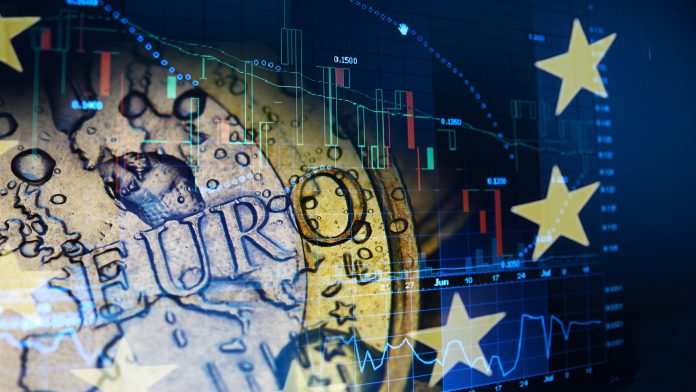Innovation News Network brings you an easy to use guide to help you understand the inner workings of Europe’s most talked about funding programmes.
The European Commission has developed funding programmes in a wide range of sectors, some of which span across disciplines. In the wake of the COVID-19 pandemic, these funding programmes have proven essential to developing new methods of combating the disease. The European Commission recently borrowed from these funding programmes to invest €314m to aid Europe’s recovery from the COVID-19 pandemic.

Horizon 2020 and Horizon Europe
Between 2014 and 2020, Horizon 2020 made €80bn of funding available for innovators in the science and technology industry. Although Horizon 2020 is coming to an end later this year, there are still many funding calls available for innovators. With a focus on sustainability, healthcare, and digital solutions, the European Commission aims to bring forth a new era of safety and environmental consciousness in Europe.
As one of the most ambitious research and innovation programmes ever created, Horizon Europe will build on the achievements and success of its predecessor, Horizon 2020. The European Commission have proposed the budget allocation of €100bn for Horizon Europe. This funding will be distributed between 2021-2027, this includes €97.6bn under Horizon Europe (€3.5 bn of which will be allocated under the InvestEU Fund) and €2.4bn for the Euratom Research and Training Programme.
The Euratom programme, which funds research and training on nuclear safety, security and radiation protection, will have an increased focus on non-power applications such as healthcare and medical equipment, and will also support the mobility of nuclear researchers under the Marie Skłodowska-Curie Actions. The European Commission have expressed five mission areas for Horizon Europe. These missions include:
- Adaptation to climate change including societal transformation
- Cancer
- Climate-neutral and smart cities
- Healthy oceans, seas, coastal and inland waters
- Soil health and food
To successfully represent Europe in this new funding programme, the views of more than 7,000 respondents were collected through web-based surveys. An additional 4,000 participants engaged in in-depth debates at the European Research and Innovation Day, which took place in Brussels on 24 – 26 September 2019.

EU Health Programme
Created by the European Union (EU), the EU Health Programme is a funding programme developed to implement the EU health strategy, which focusses on integrating health in all EU policies, and strengthening the EU’s voice in global health.
The EU has entrusted an independent body, named Chafea, with the management of the Health Programme. Chafea implements annual work plans, where priority areas, criteria, and actions are implemented and decided upon by the Directorate General for Health. The third EU Health Programme, valued at €449.4m, is the main European Commission instrument to implement the EU Health Strategy. The funding programme has four main objectives for achieving the EU’s healthcare goals:
- Promote health, prevent diseases, and foster supportive environments for healthy lifestyles according to the ‘health in all policies’ principle
- Protect Union citizens from serious cross-border health threats
- Contribute to innovative, efficient, and sustainable health systems
- Facilitate access to better and safer healthcare for EU citizens
The EU expect this new health programme to result in a more integrated coherent approach to preparedness plans, improved surveillance and response to cross-border health threats, increased sustainability of health systems, and the creation of European Reference Networks, for example on rare diseases.

Cohesion Fund
The Cohesion Fund offers financial investment to projects based in Member States with a gross national income (GNI) per inhabitant of less than 90% of the EU average. This funding programme plans to reduce economic and social disparities by promoting sustainable development and innovation.
The Cohesion Fund has focussed on Bulgaria, Croatia, Cyprus, the Czech Republic, Estonia, Greece, Hungary, Latvia, Lithuania, Malta, Poland, Portugal, Romania, Slovakia, and Slovenia, for the 2014-2020 period. The funding will allow Member States to support their countries’ development in:
- Sustainable infrastructure
- Trans-European transport networks
- Renewable energy
- Social cohesion
This funding programme has a strict set of rules for its participants, this is to ensure that the funding is used to improve upon the lives of those who inhabit these Member States. The financial assistance of the Cohesion Fund can be suspended by a council decision if a Member State shows excessive public deficit and has not taken the appropriate action to do resolve the situation.
The total rate of the EU assistance cannot exceed 85% of public expenditure and depends on the type of operation to be carried out. For projects, which generate revenue, the support is calculated considering the forecasted proceeds.

European Innovation Council
The Enhanced European Innovation Council (EIC) Pilot is aims to support innovators, small companies, and scientists to progress their research and innovations. Around €3bn in funding from the EIC will be allocated between 2018 and 2020 to fund some of the most talented innovators and to help companies expand beyond European boarders.
The EIC offers provides funding to projects through three main schemes. The first of which, named EIC Pathfinder Pilot, includes FET-Open and FET-Proactive to offer grants of up to €4m to promote collaborative, inter-disciplinary research, and innovation on science-inspired and radically new technologies.
Secondly, the EIC’s Accelerator Pilot will support high risk, high potential, small to medium sized enterprises that are willing to develop and commercialise products, services, and business models. The final scheme, named Fast Track to Innovation, is offered to mature projects developing innovative technologies, concepts, and business models which are close to market. The EIC has expressed interest in funding innovative research project that develop new technologies that facilitate breakthroughs in:
- Artificial Intelligence
- Autonomous devices and materials
- Zero-emission energy generation
- Decarbonisation in Europe
The EIC also offers Horizon Prizes, which are awarded to projects that can effectively meet a defined challenge, without prescribing how that challenge should be solved. These individual prizes are valued between €5m and €10m.

Environment and climate action (LIFE)
Managed by the European Commission, the LIFE programme was set up by the 2014-2020 Regulation to establish the Environment and Climate Action sub-programmes for the funding period 2014–2020. The budget for the period is set at €3.4bn.
The LIFE work programme for 2018-20 increases LIFE’s budget for nature conservation and biodiversity by 10% compared to the previous work programme. The total number of project topics in the environment sub-programme has reduced by almost 50%. The LIFE programme has four main objectives:
- Help move towards a resource-efficient, low carbon, and climate resilient economy, improve the quality of the environment and halt and reverse biodiversity loss
- Improve the development, implementation, and enforcement of EU environmental and climate policy and legislation, and act as a catalyst for, and promote, the mainstreaming of environmental and climate objectives into other policies and practices
- Support better environmental and climate governance at all levels, including better involvement of civil society, NGOs, and local actors
- Support the implementation of the 7th environmental action plan
The LIFE work programme also details how the project will allocate resources among areas of policy priority in 2018-2020. The report clarifies budgets by specifying what kind of projects can receive support within sub-programmes for Environment and Climate Action. In total, €1 243.81m will be earmarked for work on nature conservation and environmental protection, and a further €413.25m for climate action.









